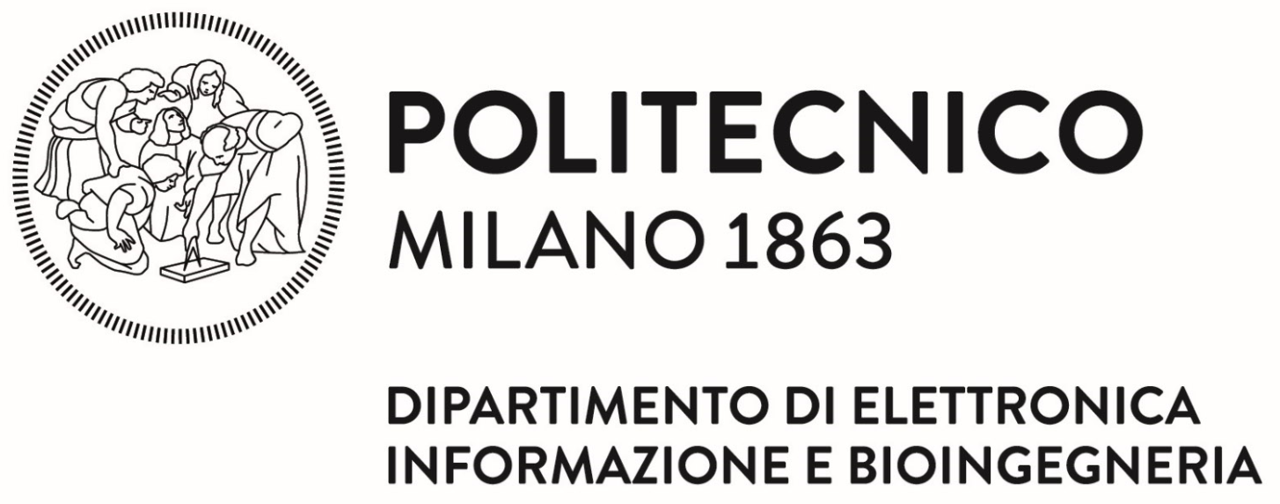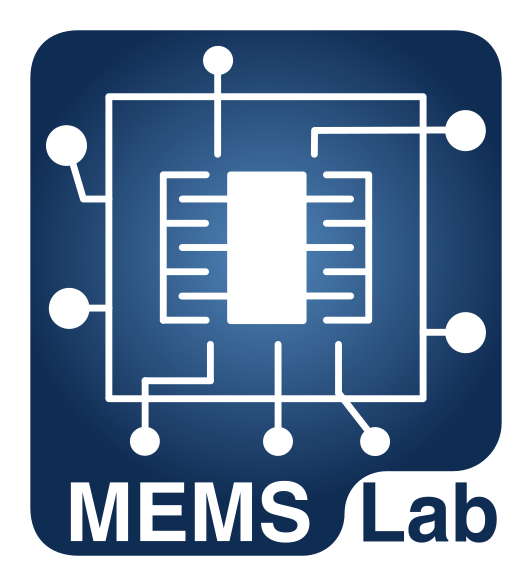|
|
|
Giacomo Langfelder
Giacomo Langfelder received his Master in Electronics Engineering and
his Ph.D. in Information Technology in 2005 and 2009 respectively from
Politecnico di Milano, Italy. There, he was a Teaching and Research
Assistant in 2009 and 2010. From June 2010 to October 2015 he was an
Assistant Professor of Optoelectronic Systems and Digital Imaging of
MEMS and Microesensors. Currently, he has been Associate Professor
and Lecturer of MEMS and Microsensors since November 2019.
Giacomo has been as well the director of the MEMS and Microsensors
laboratory since January 2014.
His research interests include sensors, their front-end electronics,
and related applications. At the early stage of his career, he worked
on innovative CMOS sensors with tunable color spaces; on MEMS process
reliability; on MEMS accelerometers design and related VLSI
electronics. He is now active in the field of MEMS sensors for
low-noise, low-power applications, including MEMS magnetometers
operating off-resonance, MEMS gyroscopes based on nano-gauge detection,
FM MEMS gyroscopes, micromachined ultrasonic transducers and AMR
sensors.
Within his research, he has been collaborating with industries for
almost a decade. He has been the technical responsible for Politecnico
di Milano within two european project (NIRVANA and Lab4MEMS). He has
been collaborating with European and non-European scientific partners,
as attested by publications.
He was the sole author or co-author of about 100 peer-reviewed
scientific articles and about 150 peer-reviewed publications in
international conferences proceedings. He was also the co-author of about 25
italian/european/international patents. He was an invited speaker at
International Conferences, at PhD summer schools, at scientific events
on digital imaging held at Stanford University, California, and
recently
(2014) at a scientific event about the future of MEMS sensors held in
Milano, Italy. He served as TPC member ot TP Chair for various IEEE conferences.
Giacomo Langfelder was the recipient of the Premio di Laurea 2005,
granted by Accenture, and of the "Premio per la promozione della
Ricerca Scientifica 2011", granted by Rotary International.
In 2014, he was a co-founder and President of ITmems s.r.l., a spin-off
company dedicated to the development of Instrumentation for the
characterization of MEMS and sensors.
|
|
|
|
 |
|
|
|
Paolo Frigerio
Paolo
Frigerio was born in Monza, Italy, in 1994. He received both the B.Sc.
and M.Sc. degrees in Electronics Engineering from Politecnico di Milano
in 2016 and 2018 respectively. During his Master Thesis he worked on
the implementation of an integrated low-power oscillator for a
temperature-compensated MEMS-based Real-Time Clock. From November 2018
to October 2021 he was a Ph.D. student in Information Technology in
Politecnico di
Milano. After Ph.D. graduation, he joined the department of
Electronics, Information Technology and Bioengineering as an Assistant
Professor in 2022. His teaching assistant activity was carried on
within the courses of Digital Electronic Integrated Design, MEMS and
Microsensors, and Electronic Fundamentals. His current research
activity is centered on MEMS
micro-mirrors, with a focus on the design of electronic actuators,
controllers and
on transducers reliability.
|
|
|
|
 |
|
|
|
Andrea Fagnani
Andrea Fagnani received the B.Sc. and M.Sc. degrees in electronics
engineering from Politecnico di Milano, Milan, Italy, in 2020 and 2022,
respectively, where he is currently pursuing the Ph.D. degree in
information technology, developing low-power, low-noise readout
electronics for microelectromechanical systems (MEMS) micromirrors.
During his M.Sc. thesis, he worked on the characterization and
implementation of a temperature sensor based on multimode MEMS
resonators. He is the auhtors of a few publication in this field.
|
|
|
|

|
|
|
Alessandro Ticozzi
Alessandro Ticozzi received the B. Sc. and the M. Sc. degrees in
electronics engineering from Politecnico di Milano, Italy, in 2020 and
2022, respectively.
During his master thesis he developed an analog/digital acquisition
system for electronic noses for prostate cancer early detection, in
collaboration with the Chemistry, Materials and Chemical Engineering
Department.
He is currently a Ph.D. candidate in Information Technology at DEIB,
Politecnico di Milano, working on high-end MEMS accelerometers,
focusing on innovative control strategies for force-feedback MEMS
accelerometers.
|
|
|
|

|
|
|
Luca Pileri
Luca Pileri received the B.S. and M.S. degrees in Electronics
Engineering from Politecnico di Milano, in 2020 and 2023, respectively.
After the thesis experience in a new design of MEMS accelerometer, he
decided to join the same laboratory as a Ph.D. student.
His research interests include high-performance MEMS Gyroscopes with a
deeper focus on Allan variance analysis and its correlation with device
non-idealities.
The research includes design of MEMS, sensor characterization, digital signal processing and mathematical modelling.
|
|
|
|
 |
|
|
|
Gabriele Laita
Gabriele Laita received the B.Sc. and M.Sc. (Hons.) degrees in
electronics engineering from Politecnico di Milano, Milan, Italy, in
2019 and 2022, respectively.
He is currently pursuing the Ph.D. degree in information technology
with the Dipartimento di Elettronica, Informazione e Bioingegneria,
Politecnico di Milano.
His research focuses on the design of high performance MEMS gyroscopes based on NEMS resistive sensing, and related electronics.
|
|
|
|
 |
|
|
|
Marco de Pace
Marco de Pace received the B.Sc. and M.Sc. degrees in
electronics engineering from Politecnico di Milano, Milan, Italy, in
2020 and 2022, respectively.
He is currently pursuing the Ph.D. degree
in information technology with the Dipartimento di Elettronica,
Informazione e Bioingegneria, Politecnico di Milano.
His research
focuses on the design of high performance capacitive MEMS gyroscopes and related
electronics for navigation applications.
From July 2022 he has also been an intern with Apple, Munich, Germany.
|
|
|
|
 |
|
|
|
Andrea Buffoli
Andrea
Buffoli received the B.Sc. and the M.Sc. in Electronics Engineering from
Politecnico di Milano in 2018 and 2020, respectively. During his Master Thesis
he developed a low noise integrated circuit for MEMS gyroscopes based on
nano-gauge detection. Dr. Buffoli is now a PhD candidate in Information
technology at Politecnico di Milano, Italy, researching on high-performance and
high stability MEMS gyroscopes based on nano-gauge detection and the design of
the related electronics. He is now a laboratory guest working for iNGage SAS.
|
|
|
|
 |
|
|
|
Christian Padovani
Christian Padovani received the M.Sc. degree in Electronics
Engineering from Politecnico di Milano, Italy, in 2021. His M.S. thesis
is based on integrated frequency digitization systems. He is currently
pursuing the Ph.D. degree in Information Technology, developing
high-end MEMS frequency modulated (FM) accelerometers and integrated
electronics. He is now a laboratory guest working for Northrop Grumman Italia.
|
|
|
|

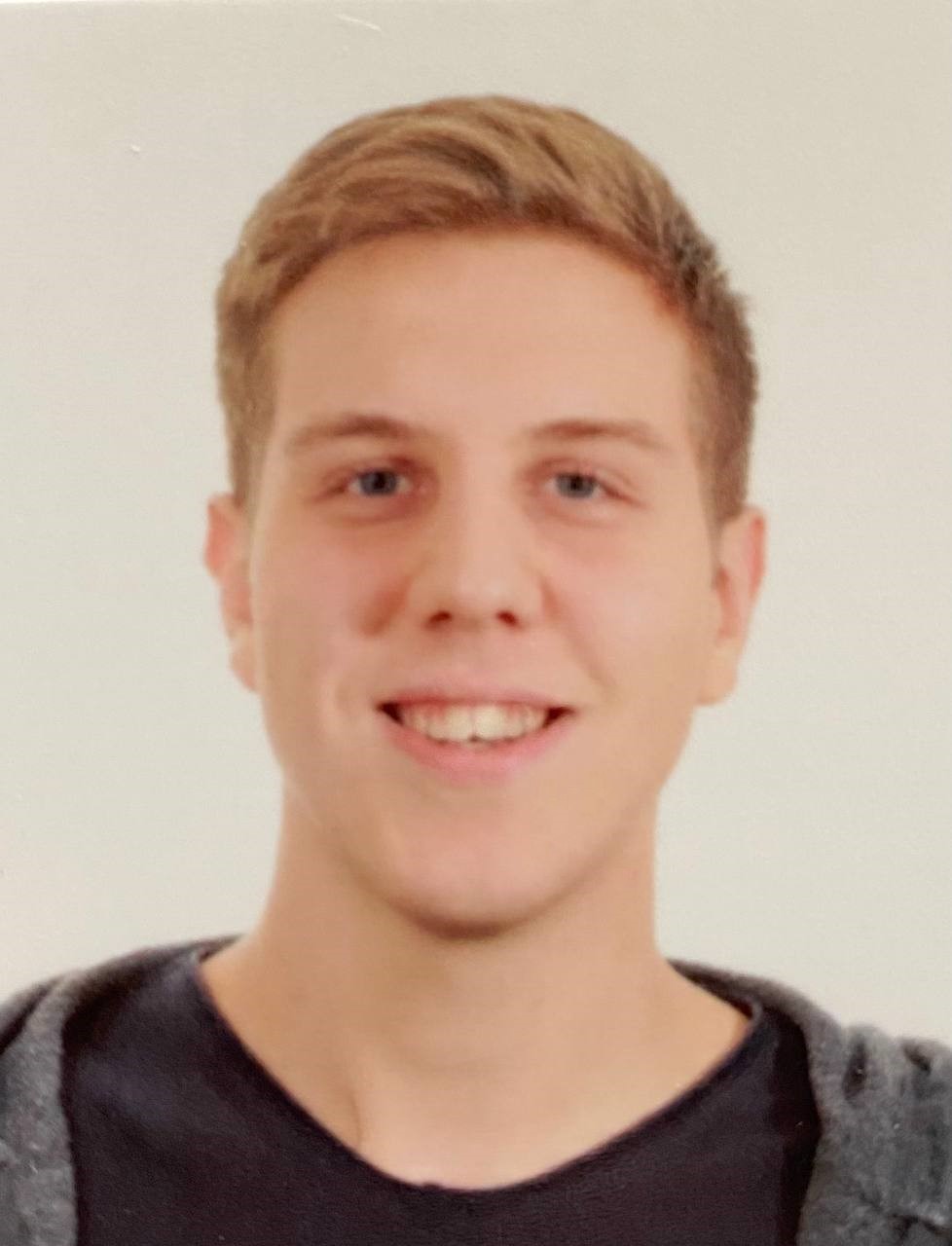
Contact Info
- Office:
- via C. Golgi 40, room 305
- Tel:
- +39022399 6152
- e-mail:
- riccardo.nastri@polimi.it
|
|
Riccardo Nastri
Riccardo Nastri received the B.Sc. and M.Sc. degrees in Electronics
Engineering from Politecnico di Milano in 2019 and 2022, respectively.
During his Master Thesis he worked the development and characterization
of high-end MEMS frequency modulated (FM) accelerometers and related
electronics.
He is currently pursuing the Ph.D. degree in Information Technology, focusing on MEMS Rate-Integrating Gyroscopes.
. |
 

|
|
|
|
Antonio Longoni
Prof. Antonio Longoni has been the historical Head of the
Sensors&Detectors Laboratory since its foundation. Full professor
at Politecnico di Milano in several courses including Electron Devices,
Photodetectors, and MEMS and Microsensors, he retired in 2015. He has
contributed to the development of a new type of radiation detector, the
ÔÇśSemiconductor Drift Detector and of imaging detectors for X and
Gamma rays. He conceived and participated to the
development of a new color sensitive imaging detector for photographic
applications. He carried out researches concerning noise problems in
semiconductor devices and concerning the application of
hetero-structure devices in nuclear electronics. He contributed to the
development of new X-Ray based instrumentation for micro-analyses of
materials, in particular instrumentation for elemental mapping based on
XRF techniques. He
is author of more than 120 publications on international scientific
reviews and of a few patents. He received from the Italian ÔÇśAccademia
Nazionale dei LinceiÔÇÖ a prize for the development of innovative
instrumentation for the diagnosis of works of art and cultural
heritage. Antonio is also the co-founder of two spin-off companies of
Politecnico di Milano, in the field of instrumentation for high-energy
detectors and for MEMS.
|
|
|
|
Matteo Gianollo
Matteo Gianollo was born in Milan, Italy, in 1995. He received the
B.Sc. and M.Sc. degrees in electronics engineering from the Politecnico
di Milano, Italy, in 2017 and 2019, respectively.
During his Master Thesis, he worked on the electro-mechanical design of
Lissajous frequency modulated gyroscopes with NEMS piezoresistive
readout.
Since May 2020 he has been a Ph.D. student in Information Technology in Politecnico di Milano.
His research activity is focused in the development of high-efficiency
driver for MEMS micro-mirrors. He is now a laboratory guest working for
Civitanavi Systmes by Honeywell.
|
|
|
|
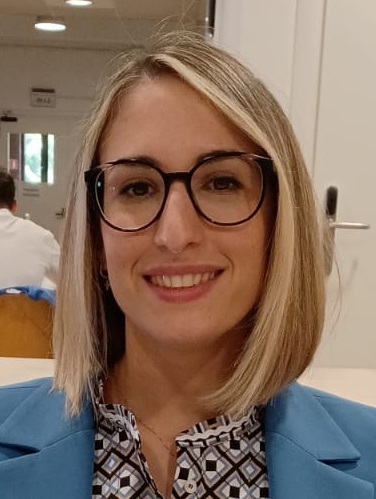
|
|
Sara Cozzi
Sara
Cozzi received the M.Sc. degree in Electronics Engineering from Politecnico di
Milano, Italy in 2022. During her M.S. thesis, she developed a control system
for quasi-static MEMS micromirrors based on the implementation ofa state
observer. She currently works under a research grant on the development and
characterization of MEMS structures with the Dipartimento di Elettronica,
Informazione e Bioingegneria, Politecnico di Milano. |
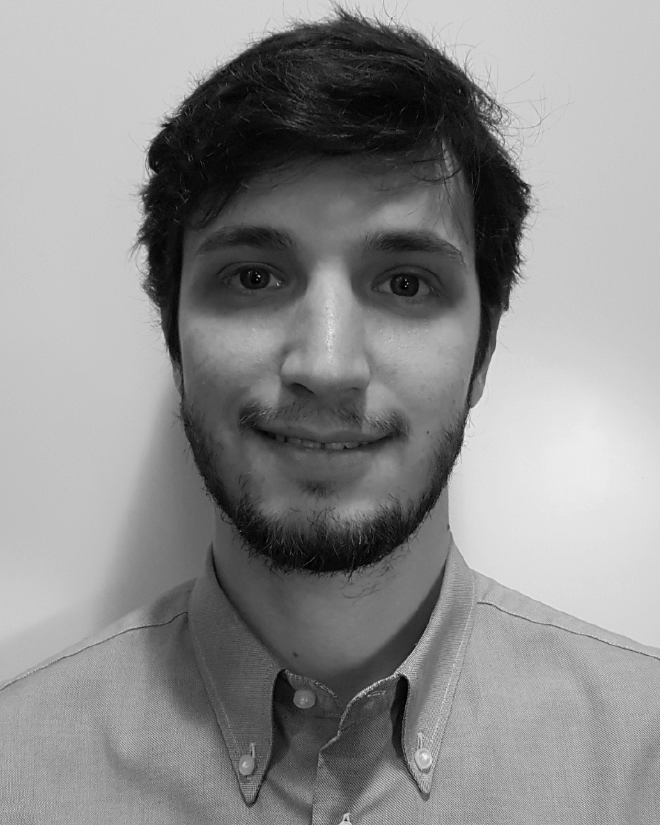
|
|
Leonardo Gaffuri Pagani
Leonardo
Gaffuri Pagani was born in Cant├╣, Italy, in 1991. He received the B.Sc.
and M.Sc. degrees in electronics engineering from the Politecnico di
Milano, Italy, in 2014 and 2017, respectively. In 2017, he received the
research grant for the study of MEMS devices emulation with the
Dipartimento di Elettronica, Informazione e Bioingegneria, Politecnico
di Milano. He started his Ph.D in Information Technology researching on
innovative MEMS sensors and related electronics.
|
|
|
|
Bianca Di Diodoro
Bianca di Diodoro was born in 1995 in Bologna, Italy. She received
the B.Sc. and M.Sc. degrees in Electronics Engineering from the
Politecnico di Milano, Italy, in 2016 and 2019, respectively.
During the M.Sc. thesis, she worked on the characterization of fatigue effects on piezoelectric micromirrors.
She is currently pursuing the Ph.D. degree at Politecnico di Milano
working on electronic nose systems for medical and industrial
applications.
|
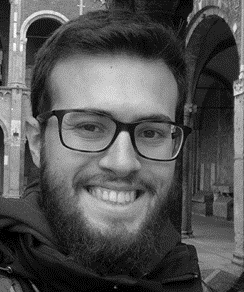 |
|
Marco Gadola
Marco
Gadola received the B.Sc. and M.Sc. degrees in Electronics Engineering
from Politecnico di Milano in 2015 and 2017, respectively. During his
Master Thesis, he developed sensing electronic interfaces and several
testing routines for MEMS Lorentz-force magnetometers. He is now
attending the PhD in Information technology at Politecnico di Milano,
Italy, researching on 3-axis MEMS gyroscopes based on nano-gauge
detection for high-stability automotive applications. |
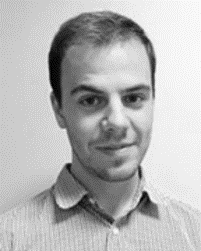 |
|
Marco Bestetti
Marco
Bestetti received the BS and MS degrees in Electronics Engineering from
Politecnico di Milano, in 2015 and 2017, with a MS thesis on MEMS based
real-time clocks. Since May 2018 he is working toward the Ph.D. in
Information Technology with the Dipartimento di Elettronica,
Informazione e Bioingegneria, Politecnico di Milano. His research is
focused on the development of integrated systems for
Frequency-Modulated Accelerometers and Gyroscopes. |
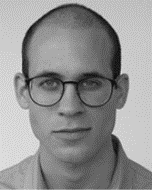 |
|
Giorgio Mussi
Giorgio
Mussi received the B.Sc. and M.Sc. degrees in Electronics Engineering
from Politecnico di Milano, Italy, in 2014 and 2016, respectively. He
is currently pursuing the Ph.D. degree in Information Technology with
the Department of Electronics, IT and Bioengineering at Politecnico di
Milano. His research interests are focused on low-power
analog/mixed-signal integrated electronics for MEMS applications, such
as timing and inertial sensors. Since 2018, he has been Teaching
Assistant for the courses of MEMS and Microsensors, and of Digital Integrated Circuit Design |
|
|
|
Cristiano Rocco Marra
Cristiano Rocco Marra was born in Larino (CB), Italy, in 1990. He
received both the B.Sc. and the M.Sc. degrees in Electronics
Engineering from Politecnico di Milano, in 2012 and 2015 respectively.
Since November 2015, he is a Ph.D. student in information technologies
at the Sensors and Detectors Laboratory of Politecnico di Milano. His
area of interests includes microelectromechanical systems (MEMS)
sensors, in particular magnetic field sensors and accelerometers, and
related electronics.
|
|
|
|
Paolo Minotti
Paolo Minotti was born in Monza, Italy, in 1988. He received both the
B.Sc. and the M.Sc. degree in Electronics Engineering from Politecnico
di Milano, in 2010 and 2013 respectively. Since November 2014, he has
been a PhD Student in the Sensors and Detectors Laboratory at
Politecnico di Milano. His research interests include
microelectromechanical systems (MEMS), in particular gyroscopes and
magnetic field sensors.
|
|
|
|
Stefano Dellea
Stefano Dellea received the B.S. and M.S. degrees in physics
engineering from the Politecnico di Milano, Italy, in 2008 and 2011
respectively. He specialized in design of MEMS and characterization of
fatigue effect in polysilicon, developing his Master Thesis ÔÇťStudio di
fenomeni di fatica nel silicio policristallino alla microscala in
funzione delle condizioni ambientaliÔÇŁ (ÔÇťStudy of fatigue effects in
polycristalline silicon in microsystem depending on environmental
conditionsÔÇŁ). Since December 2011, under Professor Antonio Longoni's
supervision, he works as researcher about adhesion force in project
called "Surface interaction in micro and nano devices", and since
December 2012 he collaborates at the european project called ÔÇťNIRVANAÔÇŁ
about design of a M&NEMS gyroscope. His research include design,
fabrication and reliability of MEMS.
|
|
|
|
Giacomo Laghi
Giacomo Laghi was born in Ravenna, Italy, in 1988. He received the
B.Sc. and M.Sc. degrees in electronic engineering from Politecnico di
Milano, Milano, Italy, in 2011 and 2013, respectively. Since November
2013 he has been a Ph.D. student in information technologies in the
Sensors and Detetors Laboratory at Department of Electronics,
Information Technology, and Bioengineering (DEIB) of Politecnico di
Milano. His research interests include the design of
microelectromechanical systems sensors, with a particular focus on
Lorentz force magnetic sensors.
|
|
|
|
Federico Giacci
Born in 1988, Federico Giacci obtained the Master Degree in Electronic
Engineering at Politecnico di Milano in October 2012, with the
evaluation of 110/100 con lode. He developed a master thesis on
innovative MEMS gyroscopes based on nanometric structural elements,
participating to the NIRVANA project, whose aim is the production of
new M/NEMS inertial sensors. The main applications are in the fields of
robotics, automotive and biomedicine. Since October 2012 he is
attending the Ph.D. Doctoral School at DEIB (Dipartimento di
Elettonica, Informazione e Biomedica) at Politecnico di Milano, where
he is deepening the topics previously faced in the thesis in particular
the study and development of N/MEMS structures and of the related VLSI
electronics, according to the NIRVANA project he is already joining
with.
|
|
|
|
Alessandro Caspani
Alessandro Caspani received the B.S. and M.S. degrees in Electronic
Engineering from the Politecnico di Milano, Milan, Italy, in 2009 and
2011, respectively. During his Master Thesis, entitled "Elettronica
VLSI a bassa dissipazione per pilotaggio e lettura di accelerometri
MEMS risonanti" ("Low-Power VLSI Electronics for Driving and Sensing of
MEMS Resonant Accelerometers"), he focused on MEMS characterization and
low-power low-noise IC design. Since January 2012 he is developing his
Ph.D. research in the SanDLab group as a part of a collaboration
between Politecnico di Milano and VTT(Technical Research
Centre of Finland). His research experties also comprehends MEMS structure design and optical image sensors.
|
|
|
|
Nicola Aresi
Nicola Aresi received his MS in Electronics Engineering in 2013 from
Politecnico di Milano, Italy, with a Thesis discussing the system
engineering of a versatile instrument for MEMS characterization. In the
period 2013-2015, he was a Research Assistant at the Sensors&Detectors
laboratory, collaborating on the characterization of MEMS gyroscopes
based on piezoresistive nano-gauges, and on the development of
micro-climatic chambers for MEMS and AMR sensors.
In 2014, he was a co-founder and CTO of ITmems s.r.l. He is now with
XGlab s.r.l., but still strongly collaborates with the Sensors&Detector
lab activities.
|
|
|
|
Federico Zaraga
Prof.Federico Zaraga had a honor degree in engineering from Politecnico
di Milano in 1969. He has been initially with the Physics Department of
Politecnico di Milano, working on new types of laser and applications,
and to the development of automatic measurement systems. He has been
Research Associate at the Department of Chemistry of the University of
California, Berkeley, working on laser initiated chemical reactions and
reaction kinetic measurement. Is presently associate professor at the
Department of Electronics and Information of the Politecnico di Milano,
were he teaches Optoelectronics and Optoelectronic Systems for Image
Acquisition. He has spent several years as a part time professor,
working on technology transfer and consulting for some of the most
important Italian industries and contributing to several applied
research projects funded by Ministero dellÔÇÖIndustria. His present
research interests are in MEMS reliability and Color sensitive pixel
detectors and their application in image acquisition.
|
|
|
|
Alessandro Tocchio
Alessandro Tocchio received the B.S. and M.S. degrees in electronic
engineering from the Politecnico di Milano, Milan, Italy, in 2006 and
2008, respectively. His M.S. thesis was entitled ÔÇťWafer-level packaging
of an optical gas sensor,ÔÇŁ and it was carried out in the Microsystem
Technology Group, Royal Institute of Technology (KTH), Stockholm,
Sweden. He completed his studies with the Ph.D. degree in Information
Technology in 2012, developing his thesis on Low-Power Low-Noise MEMS
Accelerometers. His research interests include the design and
fabrication of novel microelectromechanical sensors and the development
of the related readout electronics with a special focus on low-power
low-noise IC topologies.
|
|
|
|
|
|
Cesare Buffa
Cesare Buffa was born in Alessandria in 1985. He received his Bachelor
and M. Sc. Degree in Electronic Engineering both from Politecnico di
Milano, Italy, respectively in 2007 and 2009. He specialized in
radiation detectors and related readout electronics, developing his
master thesis ÔÇťNuove strutture per il sensore di immagine Transverse
Field DetectorÔÇŁ ÔÇô (ÔÇťNew structures for Transverse Field Detector image
sensorÔÇŁ). Parallel to M. Sc. he also attended the Alta Scuola
Politecnica (ASP) multidisciplinary double degree program for students
of Politecnico di Milano and Politecnico di Torino. In May 2010 he
obtained the ASP diploma and a second degree in Electronics Engineering
from Politecnico di Torino. From January 2010 to December 2012 he
conducted his Ph.D. as a member of Electronic Section of the
Dipartimento di Elettronica e Informazione (DEI) at Politecnico di
Milano, under Professor Antonio LongoniÔÇÖs supervision. His main
research fields are Micro Electro Mechanical Systems (MEMS) design,
integration and readout, optical image sensors and colour detection,
VLSI electronics. He has been teaching assistant for Fundamentals of
Electronics, Optoelectronics and Radiation, Microsensors and
Microsystems courses. From January 2012 he joined Prof. David A.
Horsley's MEMS Laboratory at Berkeley Sensor & Actuator Center
(BSAC), Univesity of California, Davis as a visiting researcher for
seven months. Main topics of his research are MR-MEMS magnetometers for
picoTesla range and electrometers.
|
|
|
|

